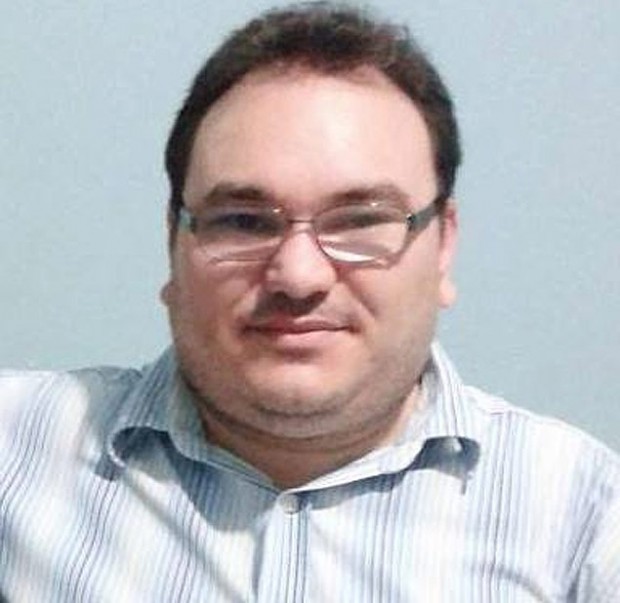
Over 30 journalists and bloggers have been murdered in Brazil since 1992, making it a dangerous place for those who speak out against local corruption – especially in the country’s remoter regions. And a culture of impunity means the killers are rarely brought to justice.
By James Young
Belo Horizonte
In a country like Brazil, where there were more than 52,000 murders in 2014, it is not always easy to identify patterns. Especially in cases such as that of Roberto Lano, murdered in the town of Buriticupu in the northern state of Maranhão just over a week ago, and victim of one of the most typical types of Brazilian homicide – a gunman pulling up on a motorbike, squeezing the trigger, and speeding off into the night.
Or the death of 30-year-old Ítalo Eduardo Diniz Barros, killed in almost identical circumstances in another Maranhão town, Governador Nunes Freire, the Friday before that.
Or even the murder of Israel Gonçalves Silva, shot dead in a stationery store at 7.30 in the morning, again by men on a motorbike, in Lagoa de Itaenga, in the north-eastern state of Pernambuco, on November 10th. He had just dropped his two young children off at school.
What connects the deaths of Roberto, Ítalo and Israel – or Décio Sá, murdered in São Luís, the capital of Maranhão, in April 2012, or Gleydson Carvalho, shot last August as he presented his radio show in Camocim, Ceará, or any of over thirty other homicides in Brazil since 1992 – is that all were journalists or bloggers, and were apparently killed because the investigative or critical nature of their work had made them some powerful, dangerous enemies.
Ítalo Diniz criticised local authorities on his blog, and had told colleagues that he had often received threats from “mayors and town councillors”, while Lano had also recently attacked local politicians. Israel Gonçalves Silva regularly talked about corruption allegations on his radio show.
Another blogger, 67-year-old Evany José Metzker, was found dead in the countryside of the south-eastern state of Minas Gerais in May this year. His decapitated body showed signs of torture, and according to reports, police believe that the murder was motivated by the journalist’s investigations into child prostitution and drug trafficking.
Many other Brazilian journalists have had to deal with violence, threats, and even imprisonment as part of their work. A report by Brazil’s Associação Nacional de Jornais (National Newspaper Association), quoted in this article in The Guardian, has said that in addition to the killings, 24 journalists have been imprisoned, 33 have been the victims of assault and 59 have received threats since 2008.
Police intimidation and aggression is also an issue. A June 2013 survey by the Associação Brasileira de Jornalismo Investigativo (Brazilian Association of Investigative Journalism) revealed that during the massive month-long street protests of that year, eight journalists were arrested and 52 were beaten across ten of Brazil’s 26 states.

“The killings, particularly coming so close together, are very worrying and we urge authorities in Maranhão to make every effort to get to the bottom of them,” Andrew Downie, the São Paulo-based representative of the Committee to Protect Journalists (CPJ), an independent, non-profit organization, said after the murders of Roberto and Ítalo.
“We ask that they devote the necessary manpower and expertise to finding the culprits and that they conduct their investigations in as open and transparent a manner as possible.”
“Other local bloggers have told the CPJ that threats are a common practice in the region and it is vital that local, state and federal government act together whenever possible to ensure they send the message that threats against the press will not be tolerated and will not go unpunished,” added Downie.
According to the CPJ, at least 16 journalists have been murdered in Brazil in retaliation for their work since 2011. To make matters worse, the killers are rarely brought to justice.
While the murderer of Décio Sá was sentenced to 25 years imprisonment in 2014, and the killers of two other murdered journalists, Walgney Assis Carvalho and Rodrigo Neto, were also recently brought to justice, the CPJ points out that “as with the majority of cases…accountability has extended as far as the gunmen but not the mastermind.”
Brazil ranks 11th on the organisation’s global Impunity Index, which spotlights nations where “journalists are slain and their killers go free”. That makes the country slightly tougher at dealing with such crimes than Russia, in 10th position, but less effective than Bangladesh, India and Nigeria.
President Dilma Rousseff has promised to tackle the problem. “The federal government is fully committed to continue fighting against impunity in cases of killed journalists,” she said in a meeting with CPJ representatives in Brasilia in June last year, when she pledged to support legislative efforts to federalize crimes against freedom of expression.
Rousseff’s current political woes, however, mean that the safety of journalists is unlikely to be her struggling government’s top priority at the moment. And in any case, a tougher stance from Brasília against those who murder bloggers and journalists may not prove to be much of a deterrent against the often corrupt local level politicians and pistoleiros that hold sway in the backlands of states such as Maranhão and Pernambuco, where local law enforcement and infrastructure can be lacking.
For now then, it seems Brazilian journalists and bloggers who have the courage to speak out against corruption and wrongdoing in their communities will have to continue looking nervously over their shoulders.

